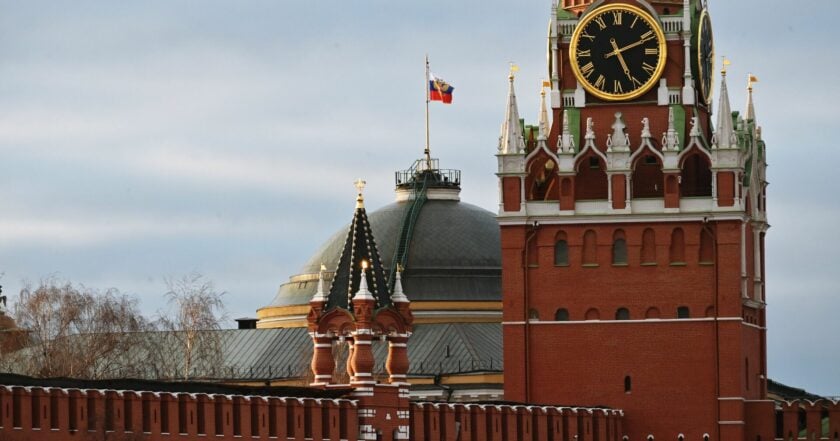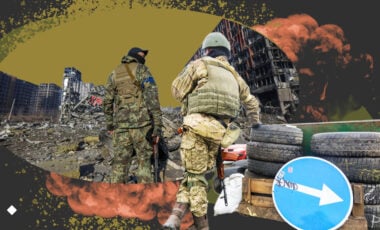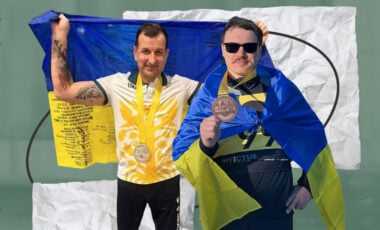Russia pushes "compatriots" strategy to expand aggression and hybrid operations beyond borders – ISW

Photo: Ria News
Analysts at the Institute for the Study of War (ISW) note that Russia is promoting the system of "compatriots abroad" to justify its further aggression and hybrid operations.
The Institute for the Study of War (ISW) reports this.
"The Kremlin appears to be developing a system to legalize the status of Russia's so-called "compatriots abroad," likely as part of its efforts to set information conditions to justify further aggression and hybrid operations abroad as "protecting" Russia's compatriots," the report reads.
According to experts, Yevgeny Primakov, director general of the Russian Federal Agency for the Commonwealth of Independent States, "compatriots" living abroad, and international humanitarian cooperation, said in an interview with the Russian propaganda publication TASS that Russian Cooperation is developing the program "Electronic Card of a Compatriot" which will allow "compatriots" abroad to:
- get access to Russian public services;
- work in the Russian Federation;
- even apply for Russian citizenship in the future.
Primakov said Russia is preparing to launch a pilot version of the program in several neighboring countries and could start issuing the first cards by the end of 2024.
According to his estimates, Russia has 20 to 40 million "compatriots" abroad. However, analysts point out that Primakov does not specify what definition of the term "compatriot abroad" he uses.
The report added that Moldovan and Ukrainian officials had previously warned that Russian officials were using the "Russian House" to promote Russian propaganda and carry out "subversive work" abroad.
Russian Cooperation has been working on the "Electronic Card of a Compatriot" project since at least 2021 but has not yet launched the program. In June 2023, Primakov said that Russian Cooperation plans to open "certification centers" in "Russian House" cells around the world, where "compatriots" will be able to verify their identity as part of the application process.
ISW Key Findings as of May 22:
- On May 21, the Russian Ministry of Defense (MoD) proposed that the Russian government reassess Russia's maritime borders in the Baltic Sea so that they "correspond to the modern geographical situation."
- Kremlin and Russian MoD officials denied on May 22 that Russia plans to change the Russian maritime border but invertedly implied that the Russian government is considering undertaking some "security" measures in the Baltic Sea.
- Western officials noted that Russia may be reassessing the basis for maritime borders to revise naval zones in the Baltic Sea.
- The Kremlin appears to be developing a system to legalize the status of Russia's so-called "compatriots abroad," likely as part of its efforts to set information conditions to justify further aggression and hybrid operations abroad as "protecting" Russia's compatriots.
- United Kingdom (UK) Defense Minister Grant Shapps stated on May 22 that US and UK intelligence have evidence that the People's Republic of China (PRC) "is now or will be" providing lethal military assistance to Russia, a statement that US National Security Advisor Jake Sullivan questioned.
- Western officials warned that Russian intelligence services intend to increase sabotage activities and other hybrid operations against NATO member countries.
- On May 21, the US Space Command reported that Russia had recently launched an anti-satellite weapon, the most recent report that Russia intends to field disruptive anti-satellite capabilities.
- Armenian Prime Minister Nikol Pashinyan indirectly accused Russia and directly accused Belarus of helping Azerbaijan to prepare for the 2020 Nagorno-Karabakh War against the backdrop of deteriorating Armenian-Russian relations.
- Ukrainian forces recently recaptured territory near Vovchansk and Chasiv Yar, and Russian troops recently marginally advanced near Vovchansk, Avdiivka, Donetsk City, and Velyka Novosilka.
- Russian courts reportedly began forcibly hospitalizing Russians charged with political crimes, such as spreading "fake" information about the Russian military, in psychiatric hospitals.





















































